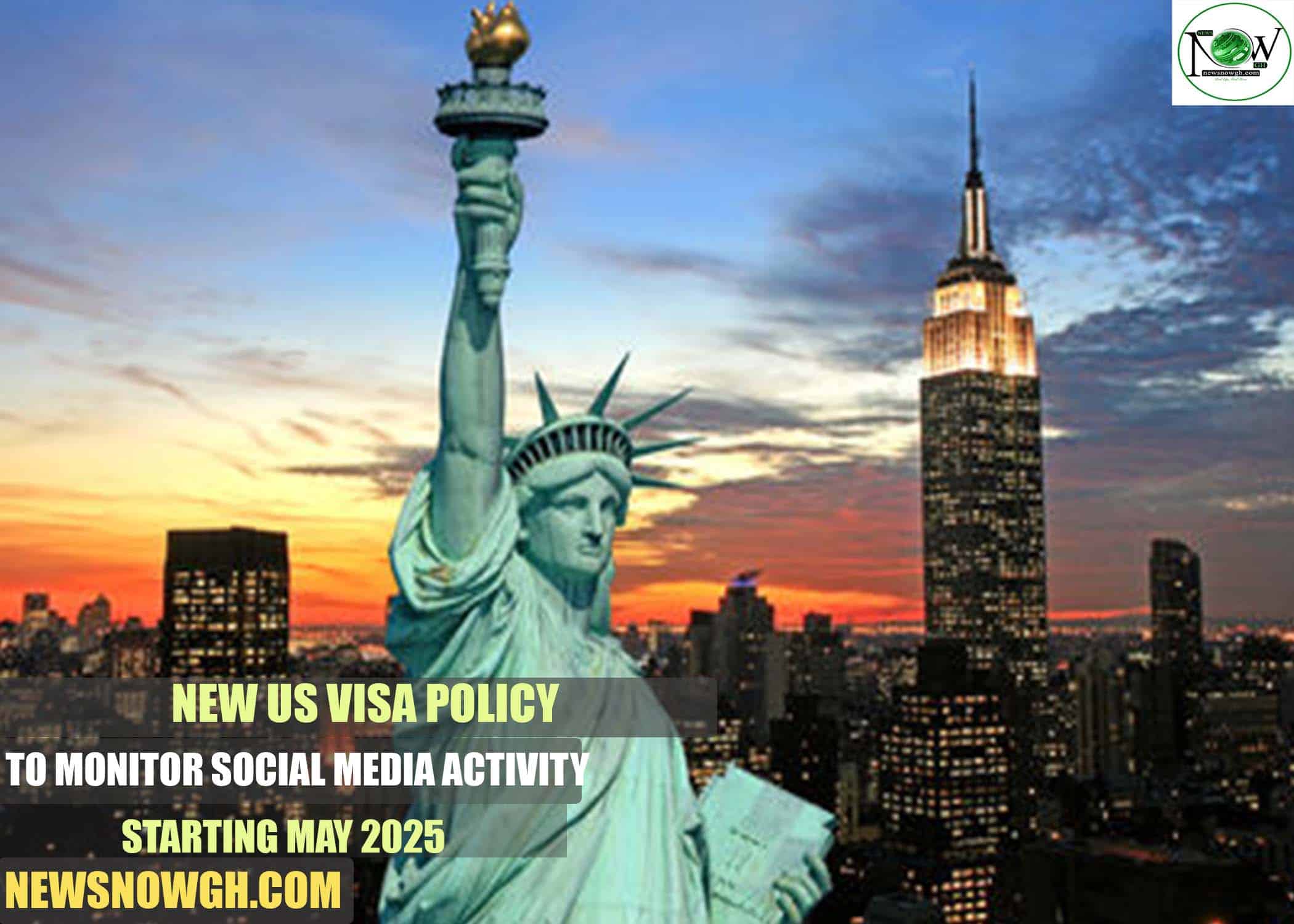New US Visa Policy to Monitor Social Media Activity Starting May 2025
Starting in May 2025, the U.S. government will implement new visa policies that include monitoring social media activity. This change affects international students, skilled professionals, academic researchers, and travelers from high-risk regions. If you belong to any of these categories, it’s crucial to understand how this policy may impact you.
Who Should Be Concerned?
1. International Students
If you hold an F-1, J-1, or M visa, your social media history from the past five years will undergo federal review. Universities like Georgetown and the University of Texas have warned students that their online content could raise red flags. Posts, likes, and group memberships may be scrutinized for signs of extremist views or antisemitic activity.
2. Skilled Workers and OPT Applicants
For those applying for Optional Practical Training (OPT) or H-1B visas, social media activity is now a significant factor in visa approval. Immigration officers may deny renewals or extensions if they find problematic associations online. This includes any support for ideologies labeled as “terrorist” or “antisemitic.”
3. Visitors from High-Risk Areas
Travelers from conflict zones such as Gaza, Iran, or Syria will face rigorous social media vetting. This includes humanitarian workers and NGO staff, who must undergo a new Security Advisory Opinion (SAO) review before traveling.
4. Scholars and Researchers
Postdoctoral researchers and academics applying for exchange programs are also at risk. Consulates have received directives to archive social media profiles during the visa issuance process. This scrutiny can significantly affect your chances of obtaining a visa.
5. Green Card and Immigration Applicants
Those adjusting their status or seeking permanent residency will also be evaluated based on their online behavior. The Department of Homeland Security (DHS) and U.S. Citizenship and Immigration Services (USCIS) will look for any endorsements of antisemitic violence or calls for violent action. Your digital identity could jeopardize your path to residency.
Key Monitoring Criteria
The U.S. screening team will look for specific activities on social media:
- Posts or likes related to terrorist organizations, such as Hamas or Hezbollah.
- Participation in online movements deemed threatening to U.S. interests.
- Membership in groups sharing antisemitic content.
- Public expressions of extreme political ideologies or advocacy for violence.
- While no passwords are required, anything public is up for review.
Catch and Revoke Program
The U.S. State Department has launched a program called Catch and Revoke. This initiative uses artificial intelligence to identify visa holders with pro-Hamas sentiments based on their social media activity. It has already resulted in the cancellation of valid visas and forced removals for individuals based on prior online statements.
Immediate Action Steps
If you fall into one of the affected groups, consider taking these steps:
- Audit Your Social Media: Review your accounts on platforms like Facebook, Twitter, TikTok, Instagram, and LinkedIn.
- Delete or Hide Problematic Posts: Remove anything that could be seen as hateful or politically radical.
- Be Transparent: Accurately disclose your online activity on your visa application. Misrepresentation can lead to bans.
- Seek Guidance: Consult your university’s international office or an immigration attorney to understand how your digital history may be viewed.
Conclusion
The new U.S. visa policy emphasizes the importance of your online presence. By taking proactive steps, you can better navigate these changes and protect your chances of obtaining a visa. Stay informed and vigilant as these regulations come into effect.
Follow NewsNowGh to stay updated on the latest information regarding work permits, visas, and visa-sponsored employment.


